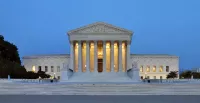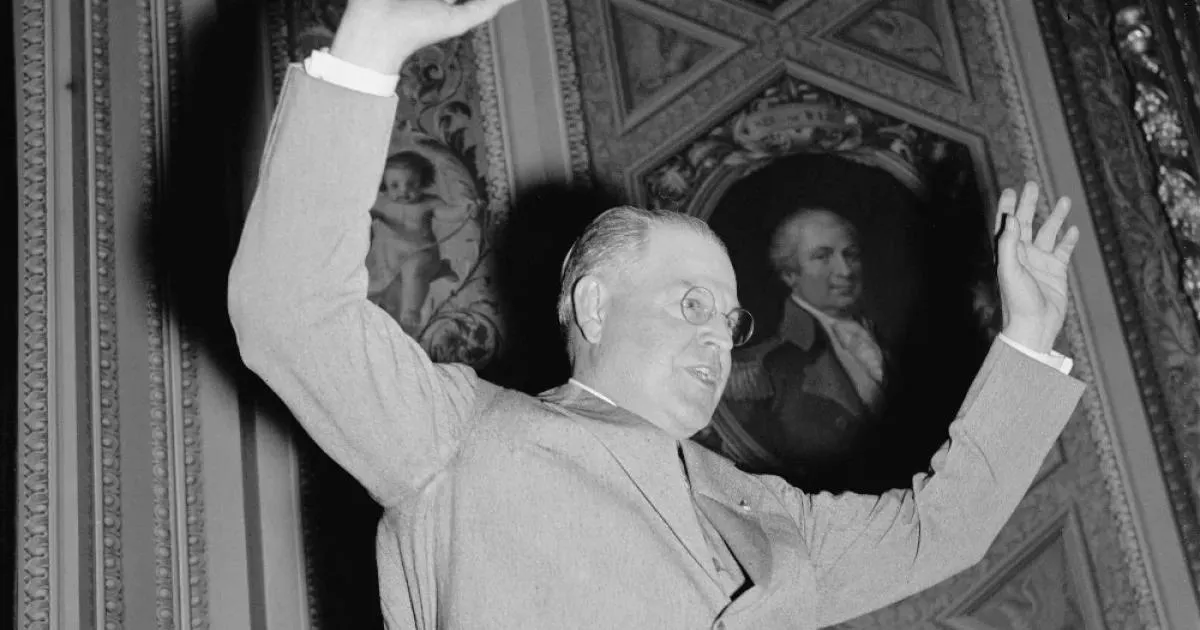A filibuster is a tactic used in legislative bodies where one or more members extend debate on a proposal to delay or block a vote. It's a procedural move designed to prevent a decision from being reached on a particular piece of legislation. The core objective is obstruction through prolonged discussion.
1936: Tommy Henderson's filibuster in Northern Ireland
In 1936, Tommy Henderson filibustered for nine and a half hours in the Northern Ireland House of Commons on the Appropriation Bill, criticizing the Unionist government.
1957: Reference to Strom Thurmond's filibuster of the Civil Rights Act
In April 1, 2025, Cory Booker's marathon senate speech surpassed the previous record of Strom Thurmond's filibuster of the Civil Rights Act of 1957.
1959: Rare forceful end to Althing debate
Prior to 2025, the Althing had not forcefully ended debate on a bill since 1959. This highlights the rarity of invoking such a measure to curtail filibustering.
November 22, 1960: Ahrn Palley's filibuster against Law and Order Maintenance Bill
On November 22, 1960, Independent member Ahrn Palley filibustered against the Law and Order Maintenance Bill in the Southern Rhodesia Legislative Assembly by moving a long series of amendments, keeping the Assembly sitting from 8 PM to 12:30 PM the following day.
April 1963: Roseller Lim's record filibuster in the Philippine Senate
In April 1963, Roseller Lim held the longest filibuster in Philippine Senate history, standing for over 18 hours to prevent Ferdinand Marcos' election to the Senate Presidency.
May 2, 1977: Bill Meier's record filibuster in the Texas Senate
Starting on May 2, 1977, Senator Bill Meier filibustered for 43 hours in the Texas Senate to delay a bill regarding workplace injury claims.
May 6, 1991: Mike Harris' Zebra Mussel Act filibuster
On May 6, 1991, Mike Harris, then leader of the opposition Progressive Conservatives, used Bill 95 (a.k.a. Zebra Mussel Act) to filibuster the implementation of the budget tabled by the NDP government. The tactic involved reading the title of the bill, which contained the names of every lake, river, and stream in Ontario, until adjournment.
March 11, 1993: Madeleine Petrovic's filibuster record
On March 11, 1993, Madeleine Petrovic, a member of the Green Party, held the record for the longest filibuster with 10 hours and 35 minutes until Werner Kogler broke the record in 2010.
1993: Jorge Ulloa's filibuster in Chile
In 1993, Jorge Ulloa of the Independent Democratic Union delivered a six-hour-long speech at the Chamber of Deputies in Valparaíso, to allow Pablo Longueira to arrive from Concepción and vote on the impeachment of three Supreme Court justices.
April 1997: NDP and Liberal filibuster against Metro Toronto amalgamation
In April 1997, the Ontario New Democratic Party, then in opposition, and the Ontario Liberal Party filibustered against the Progressive Conservatives' Bill 103, which would amalgamate the municipalities of Metro Toronto into the "megacity" of Toronto. The NDP introduced 11,500 amendments, and the Liberal Party introduced a smaller series of amendments. The NDP added another series of over 700 amendments, each proposing a different date for the bill to come into force.
1999: Pro-Establishment filibuster in LegCo
In 1999, the Pro-establishment Camp filibustered during the second reading of the Provision of Municipal Services (Reorganization) Bill in the Legislative Council (LegCo) to delay voting on the bill until absentees could cast their votes.
1999: Reform Party of Canada filibuster
In 1999, the Reform Party of Canada filibustered on native treaty issues in British Columbia. This was the longest filibuster until the NDP filibuster in 2011.
August 2000: New Zealand parties delay bill with slow voting
In August 2000, National and ACT, New Zealand opposition parties, delayed the voting for the Employment Relations Bill by voting slowly, and in some cases in Māori.
December 2, 2005: Andrew Dismore's filibuster in the UK House of Commons
On December 2, 2005, Andrew Dismore, a Labour MP, spoke for three hours and 17 minutes to block a Conservative private member's bill, the Criminal Law (Amendment) (Protection of Property) Bill.
August 2006: Left-wing opposition's amendment filibuster in France
In August 2006, the left-wing opposition in France submitted 137,449 amendments to the proposed law bringing the share in Gaz de France owned by the French state from 80% to 34% to allow for the merger between Gaz de France and Suez.
October 26, 2006: Tom Lukiwski's filibuster against Kyoto Accord study
On October 26, 2006, Conservative MP Tom Lukiwski filibustered for almost 120 minutes to prevent the Standing Committee on Environment and Sustainable Development from studying a bill to implement the Kyoto Accord.
2007: Aborted Gaz de France privatisation filibuster
In 2007, the left-wing opposition withdrew all the amendments to allow for the vote to proceed after a 'filibuster' against the privatisation of Gaz de France. The opposition appeared to lack support, and the law could be used in the 2007 presidential election.
January 2008: Time limits on speeches in the Althing
As of January 2008, the Althing implemented time limits on all speeches by its members, though these restrictions do not apply during the second reading, allowing for indefinite debate to stall bills.
February 5, 2008: Lukiwski's filibuster at Procedure and House Affairs Committee
On February 5, 2008, Tom Lukiwski filibustered for about 6 hours at the Standing Committee on Procedure and House Affairs meetings to block inquiry into allegations about Conservative Party spending during the 2006 election.
February 7, 2008: Continued filibuster by Lukiwski
On February 7, 2008, Tom Lukiwski continued his filibuster from February 5, 2008 at the Standing Committee on Procedure and House Affairs meetings, blocking inquiry into allegations about Conservative Party spending during the 2006 election.
July 2008: Reform of Article 49 paragraph 3
A reform of July 2008 of the French constitution restricted the use of article 49 paragraph 3 procedure (according to which the law was adopted unless a majority is reached on a no-confidence motion) to budgetary measures only, plus one time each ordinary session on any bill.
December 18, 2009: Pro-democracy Camp filibuster against Express Rail Link financing
On December 18, 2009, legislators of the Pro-democracy Camp filibustered during a debate about financing the construction of the Guangzhou-Shenzhen-Hong Kong Express Rail Link by raising many questions on very minor issues.
2009: Filibuster against Auckland Reorganisation Bill
In 2009, several parties staged a filibuster of the Local Government (Auckland Reorganisation) Bill by proposing thousands of wrecking amendments and voting in Māori.
January 16, 2010: Express Rail Link filibuster ends
On January 16, 2010, the filibuster of December 18, 2009, by the Pro-democracy Camp against financing the Guangzhou-Shenzhen-Hong Kong Express Rail Link concluded. The bill's passing was delayed until this date. The Legislative Council Building was surrounded by anti–high-speed rail protesters.
December 16, 2010: Werner Kogler's budget speech filibuster
On December 16, 2010, Werner Kogler of the Austrian Green Party delivered a 12-hour and 42-minute speech before the budget committee, criticizing the budget failings and the governing parties, breaking the previous record. The speech started at 13:18 and lasted until 2:00 the next morning.
June 23, 2011: NDP filibuster against Bill C-6
On June 23, 2011, the New Democratic Party (NDP) initiated a filibuster in the House of Commons of Canada to prevent the passing of Bill C-6, which aimed to impose a four-year contract and pay conditions on locked-out Canada Post workers. The filibuster extended through June 25, 2011.
June 25, 2011: Continuation of NDP filibuster
Continuing from June 23, 2011, the New Democratic Party (NDP) continued its filibuster in the House of Commons of Canada on June 25, 2011 against Bill C-6, lasting for fifty-eight hours. The NDP argued that the legislation undermined collective bargaining.
May 17, 2012: Termination of filibuster on Legislative Council (Amendment) Bill
On the morning of May 17, 2012, the President of the LegCo, Jasper Tsang, terminated the debate on the Legislative Council (Amendment) Bill, citing Article 92 of the Rules of Procedure of LegCo, ending the filibuster. All motions to amend the bill were defeated and the bill was passed.
2012: Liberal National coalition filibustering
In 2012, Tony Abbott's Liberal National coalition used suspension of standing orders to filibuster during question time against the Labor government.
November 21, 2013: Senate changes filibuster rules for nominees
On November 21, 2013, the Democratic-controlled Senate voted to require only a majority vote to end a filibuster of all executive and judicial nominees, excluding Supreme Court nominees.
2013: Pan-democracy camp submits amendments to Finance Committee procedures
In 2013, after Ip Kwok-him sought to limit each member to one motion to ban filibuster, all 27 members from the pan-democracy camp submitted 1.9 million amendments to the procedures of the Finance Committee and its two subcommittees.
2014: Alan Shatter's "Drone Attack" filibuster
In 2014, Justice Minister Alan Shatter performed a filibuster that was described as a "Drone Attack" due to his perceived repetitive and lengthy speech.
2014: David Christopherson's Fair Elections Act filibuster
In early 2014, NDP MP David Christopherson filibustered the government's Bill C-23, the Fair Elections Act, at the Procedure and House Affairs Committee. He spoke for over 8 hours in the last meeting to support his motion for cross-country hearings on the bill.
February 23, 2016: Filibuster against Anti-Terrorism bill in South Korea
On February 23, 2016, South Korean opposition lawmakers began a filibuster to stall the Anti-Terrorism bill, citing concerns about privacy invasions.
April 6, 2017: Senate changes filibuster rules for Supreme Court nominees
On April 6, 2017, the Republican-controlled Senate voted to require only a majority vote to end a filibuster of Supreme Court nominees.
April 2017: Senators support 60-vote threshold for legislation
In April 2017, a bipartisan group of 61 senators expressed support for the 60-vote threshold and opposition to abolishing the filibuster for legislation.
September 6, 2017: Filibuster to stall independence referendum
On September 6, 2017, opposition lawmakers in the Catalonian parliament started a filibuster to stall the independence referendum.
2017: Opposition filibuster against Liberal government motion
In the spring of 2017, Conservative and NDP Opposition MPs united to filibuster a motion from Government House Leader Bardish Chagger, arguing it was an attempt by the Liberal government to limit the ability of opposition parties. The filibuster lasted from March 21 until May 2.
November 8, 2021: Jaime Naranjo's filibuster to impeach President Piñera
On November 8, 2021, in the Chamber of Deputies of Chile, Jaime Naranjo from the Socialist Party spoke for almost 15 hours during the discussion of the impeachment against President Sebastián Piñera. This allowed Gonzalo Winter and Giorgio Jackson to arrive in Congress to participate in the session after their COVID-19 quarantine ended, and Jorge Sabag to arrive from Chillán.
2021: Arguments for ending the filibuster
In 2021, arguments for ending the Senate filibuster were fueled by its historical usage in blocking civil rights legislation, a practice described by the Associated Press as racist.
January 19, 2022: Senate vote to change the filibuster fails
On January 19, 2022, the Democratic-controlled Senate voted to change the filibuster, but the vote failed due to defections from Democratic Senators Joe Manchin and Kyrsten Sinema.
2022: Michaelia Cash's filibuster
In 2022, Liberal Senator Michaelia Cash engaged in a nine-hour filibuster in committee of the whole to stall the passage of industrial relations laws.
2024: Filibuster opposed bill related to 2024 South Korean martial law crisis
In December 2025, Jang Dong-hyeok filibustered to oppose a bill that would require the judiciary to designate judges for trials related to the 2024 South Korean martial law crisis.
April 1, 2025: Cory Booker's marathon senate speech
On April 1, 2025, Cory Booker gave a 25-hour and 5-minute senate speech, named Cory Booker's marathon speech, surpassing Strom Thurmond's 1957 record but was not a filibuster.
December 2025: Jang Dong-hyeok's filibuster record
As of December 2025, Jang Dong-hyeok of the People Power Party holds the longest filibustering record, speaking for 24 hours and a minute.
December 2025: Lithuania’s opposition stages parliamentary filibuster
In December 2025, Lithuania’s opposition staged the country’s first parliamentary filibuster to block amendments that would have eased the dismissal of the LRT Director General.
2025: Hakeem Jeffries sets record for longest speech on House floor
In 2025, Hakeem Jeffries set a record for the longest speech on the House floor (8 hours and 44 minutes) in opposition to the One Big Beautiful Bill Act, using the magic minute.
2025: Althing forcefully ends debate after 160-hour debate
In 2025, the Althing used a majority vote to forcefully end debate on a bill after a 160-hour debate, marking a rare instance of this action, which had not been used since 1959.
January 2026: Filibuster success delaying final vote
In January 2026, the LRT Law Amendments Filibuster successfully delayed the final vote after the committee chair’s sudden hospitalization.
Mentioned in this timeline
New Zealand is an island country in the southwestern Pacific...
Hong Kong is a densely populated special administrative region of...
Canada is a North American country the second largest in...

Impeachment is a formal process where a legislative body brings...

Justice in its broadest sense is the concept of treating...

A supreme court or court of last resort is the...
Trending

3 months ago Tara Reid's drink tampering claim at Rosemont hotel investigated; no video evidence found.

24 minutes ago Luke Kennard Impresses with Lakers, Drawing Praise and Justifying Trade.

25 minutes ago Murray & Williamson's Sunday Game Status Uncertain; Murphy to Play, Ruled Out Initially
25 minutes ago Israel's missile defense faces depletion amidst war prospects and Iran's missile acceleration.

1 hour ago Horner defends Verstappen, discusses driver swaps, and Wolff's haircut mocked in F1.

1 hour ago Pelicans face Clippers: Game action photos, predictions, odds, and Kawhi Leonard's availability.
Popular

Jesse Jackson is an American civil rights activist politician and...

Hillary Diane Rodham Clinton is a prominent American politician lawyer...

XXXTentacion born Jahseh Dwayne Ricardo Onfroy was a controversial yet...

Jim Carrey is a Canadian-American actor and comedian celebrated for...

Kashyap Pramod Patel is an American lawyer who became the...

Michael Joseph Jackson the King of Pop was a highly...
